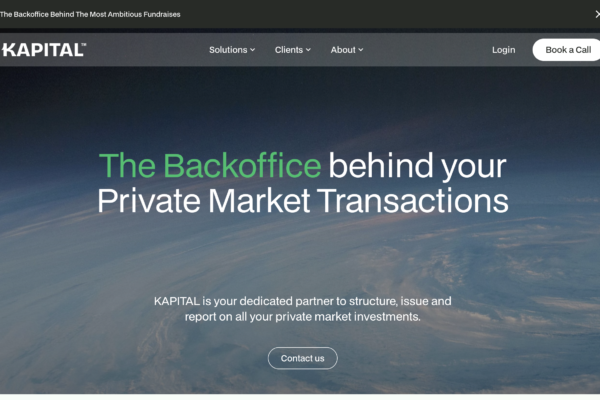Forex-Earning Scam Review: Fraudulent Platform
In recent years, the internet has become flooded with forex and crypto platforms promising effortless profits. Many advertise quick gains, “AI-driven signals,” and “guaranteed returns,” but the line between legitimate trading companies and manipulative schemes can be razor-thin. One name that has surfaced in online conversations is Forex-Earning, a platform that has drawn growing scrutiny from users claiming delayed withdrawals, unreachable support, and unclear company details.
This article does not accuse anyone of wrongdoing, but it explores why platforms like Forex-Earning raise legitimate consumer concerns—and what every trader should verify before entrusting them with a single dollar.
1. The marketing hook: when opportunity sounds too perfect
Platforms such as Forex-Earning typically attract attention through bold promises. Their websites or ads may feature screenshots of profit dashboards, testimonials claiming instant success, or phrases like “Start earning passive income today!” These messages speak to common aspirations—financial freedom, control over one’s time, or a chance to “join the market elite.”
The first warning sign here is emotional marketing. Legitimate brokers talk about risk, strategy, spreads, and compliance. Suspicious ones emphasize luxury lifestyles, fancy cars, or exaggerated profit rates. The greater the promise of certainty, the greater your need for caution.
Forex trading, by nature, is volatile and unpredictable. Even experienced professionals rarely maintain more than moderate, consistent returns. Any website suggesting guaranteed profits or a “no-risk” system is misrepresenting what trading actually is.
2. Missing or conflicting company details
One of the easiest ways to test a platform’s credibility is to verify its corporate identity. With Forex-Earning, online users have reported difficulty locating a clear corporate address, registration number, or official legal entity behind the brand.
This lack of transparency is a recurring hallmark of questionable platforms. Many operate under generic or short-lived company names, sometimes changing domain names every few months. Others list an address in an offshore jurisdiction known for light regulation, making verification nearly impossible.
A legitimate financial services business should:
-
Clearly display its legal name and registration number.
-
Provide a verifiable office address (not a rented mailbox).
-
Identify its directors or management team.
-
Offer a regulatory license number with a recognized authority.
If you can’t find these details—or if what’s listed cannot be independently confirmed—treat it as a red flag of opacity.
3. The illusion of regulation
Forex-Earning, like many unverified brokers, may reference “certifications” or “licenses” in its marketing language. Some sites even display fabricated license numbers or badges resembling those of well-known regulators.
Real regulatory oversight is easy to check. Major jurisdictions such as the United States, the United Kingdom, the European Union, and Australia maintain public databases of licensed financial institutions. If a company truly holds a license, it will appear on those official registers.
When no record exists—or when the claimed license belongs to a different company—traders should proceed on the assumption that the platform operates without supervision or consumer protection.
Unregulated brokers can disappear overnight with client funds, leaving no legal recourse. In contrast, regulated brokers are required to hold client money in segregated accounts and comply with strict financial audits.
4. The deposit-first, explain-later model
Another pattern reported with high-risk platforms is the pressure to deposit quickly. Often, users encounter persistent “account managers” or “advisers” who call, email, or message repeatedly, encouraging them to fund their account to “activate bonuses” or “secure market opportunities.”
Once a deposit is made, these managers may suggest adding more funds to “increase returns” or to “qualify for VIP support.” This plays on the psychology of sunk cost—people who’ve already invested feel compelled to commit more.
In contrast, legitimate brokers never push clients to invest more than they can afford. They present balanced risk information, offer demo accounts, and avoid emotional sales tactics. If a representative from any platform becomes insistent, manipulative, or evasive when you ask technical questions, you’re likely facing a sales-driven trap rather than a service-oriented company.
5. Withdrawal difficulties — the most common complaint
Among the loudest warning bells in user reports about Forex-Earning are stories of blocked or delayed withdrawals. Some describe being asked to pay extra fees or taxes before funds can be released. Others mention endless “verification procedures” that never conclude.
Withdrawal friction is arguably the clearest symptom of a problematic operation. Ethical brokers process withdrawals within a defined timeframe (often 1–3 business days). They might require identity verification once, but not in a way that conveniently stalls payouts.
If a platform ever asks for additional payments to “unlock” profits or cover “clearance fees,” it’s almost certainly a tactic to extract more money. Real financial firms deduct fees from account balances automatically; they don’t demand prepayments.
6. Fabricated testimonials and fake performance dashboards
Forex-Earning’s online presence, like many similar platforms, includes glowing testimonials and screenshots of trading dashboards showing large profits. These images are easy to manufacture. Stock photo models become “happy investors,” while demo accounts or graphic mockups mimic live results.
To test authenticity, reverse-search the images. Often you’ll find the same pictures on unrelated websites. Likewise, look for repetition in review language—multiple “users” writing identical sentences. That pattern suggests coordinated or automated marketing rather than real feedback.
A trustworthy broker relies on third-party reviews from established financial media, independent forums, or verifiable customer references—not anonymous praise scattered across cloned blogs.
7. The psychological playbook
Understanding how deceptive brokers manipulate users helps you avoid their traps. The typical sequence goes like this:
-
Attraction – Ads promising success appear on social media or video platforms.
-
Contact – After signing up, a “consultant” calls immediately, sounding confident and knowledgeable.
-
Trust building – Small profits appear on your dashboard, creating a sense of progress.
-
Upsell – The consultant suggests doubling your investment to “maximize momentum.”
-
Control – Withdrawals become slow or conditional. The consultant blames “market volatility” or “technical reviews.”
-
Silence – Once you insist on a payout or stop adding funds, communication ends.
Recognizing this pattern early can save you time, money, and stress.
8. How to evaluate any forex platform properly
If you ever wonder whether a site like Forex-Earning is credible, run it through a structured due-diligence checklist:
-
Regulatory verification — Check for a valid license on official government websites.
-
Corporate identity — Search business registries for the listed company name.
-
Contact responsiveness — Call or email support with specific questions; measure how clearly they answer.
-
Fee transparency — Read the terms for commissions, spreads, and withdrawal charges.
-
Domain history — Use public WHOIS or archive tools to see when the site was created and whether it changed names.
-
User patterns — Look for independent discussion threads, not just testimonial pages.
-
Technical security — Confirm the presence of SSL encryption (HTTPS), privacy policy, and clear data-handling standards.
-
Trial testing — Deposit a small, nonessential amount first. Attempt an early withdrawal before adding more.
9. What real transparency looks like
To understand how responsible brokers behave, it helps to note a few traits that distinguish them:
-
Audited financial statements published annually.
-
Regulatory disclosures about leverage limits and client protection.
-
Educational content explaining both risk and reward.
-
Customer-driven support, not commission-driven sales.
-
Predictable, documented withdrawal timelines.
Any company unwilling to meet these basic transparency standards deserves extra scrutiny.
10. The broader problem: unregulated forex and crypto overlap
Platforms like Forex-Earning thrive in the gray area between forex trading and cryptocurrency speculation. Many claim to be “multi-asset” or “AI-powered,” but the underlying model is often identical: solicit deposits, show fabricated trading data, and delay withdrawals until clients give up.
Because forex is decentralized and lightly regulated in many countries, scammers exploit that complexity. They use professional-looking websites and jargon to create the illusion of expertise. Without proper oversight, these operations can multiply faster than authorities can investigate them.
This doesn’t mean every online trading site is fraudulent—but it does mean traders must treat every unverified offer as suspect until proven otherwise.
11. Staying vigilant in the digital trading era
The internet rewards speed, but successful investing rewards patience. Whether it’s Forex-Earning or any similar platform, resist the urge to rush into deposits based on persuasive marketing or supposed “market timing.”
Take a week to research. Ask direct questions:
-
Who regulates you?
-
What bank holds client funds?
-
How are withdrawals processed?
-
Where can I read your audited reports?
If the answers are vague, inconsistent, or defensive, you’ve learned everything you need to know.
Conclusion
The story of Forex-Earning mirrors that of countless unregulated forex and crypto platforms that emerge, attract users with dazzling promises, and then vanish behind excuses or opaque processes. The patterns—missing corporate information, unverifiable licenses, withdrawal barriers, and manipulative marketing—are classic indicators of risk.
Online trading can be a legitimate path to investment growth, but only through regulated, transparent, and accountable brokers. Never let urgency override verification. The money you protect through skepticism is worth far more than the profits you might chase on a platform you cannot fully trust.
Report Forex-Earning.com and Recover Your Funds
If you have fallen victim to Forex-Earning.com and lost money, it is crucial to take immediate action. We recommend Report the scam to BOREOAKLTD.COM , a reputable platform dedicated to assisting victims in recovering their stolen funds. The sooner you act, the greater your chances of reclaiming your money and holding these fraudsters accountable.
Scam brokers like Forex-Earning.com persistently target unsuspecting investors. To safeguard yourself and others from financial fraud, stay informed, avoid unregulated platforms, and report scams to protect. Your vigilance can make a difference in the fight against financial deception.





